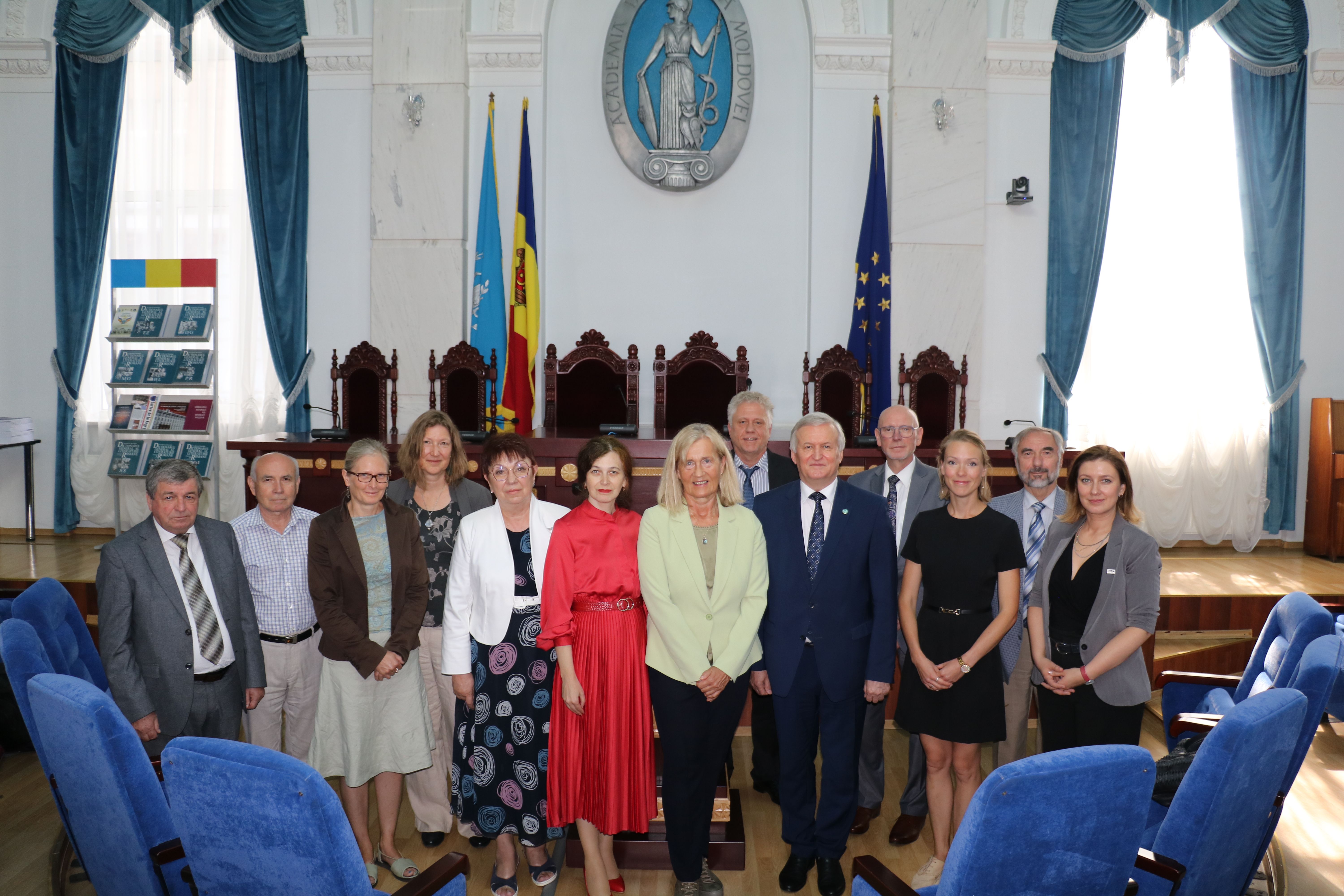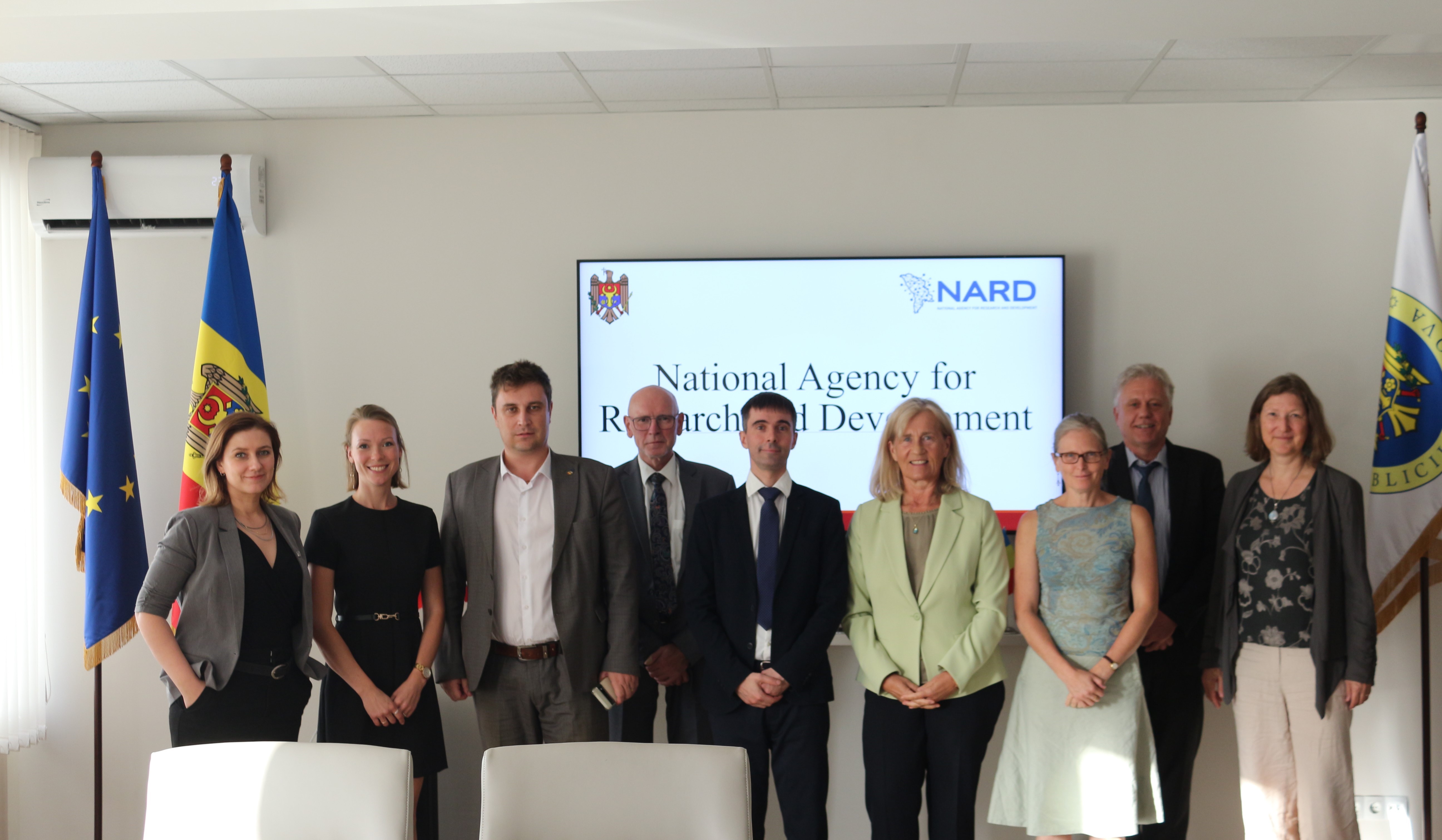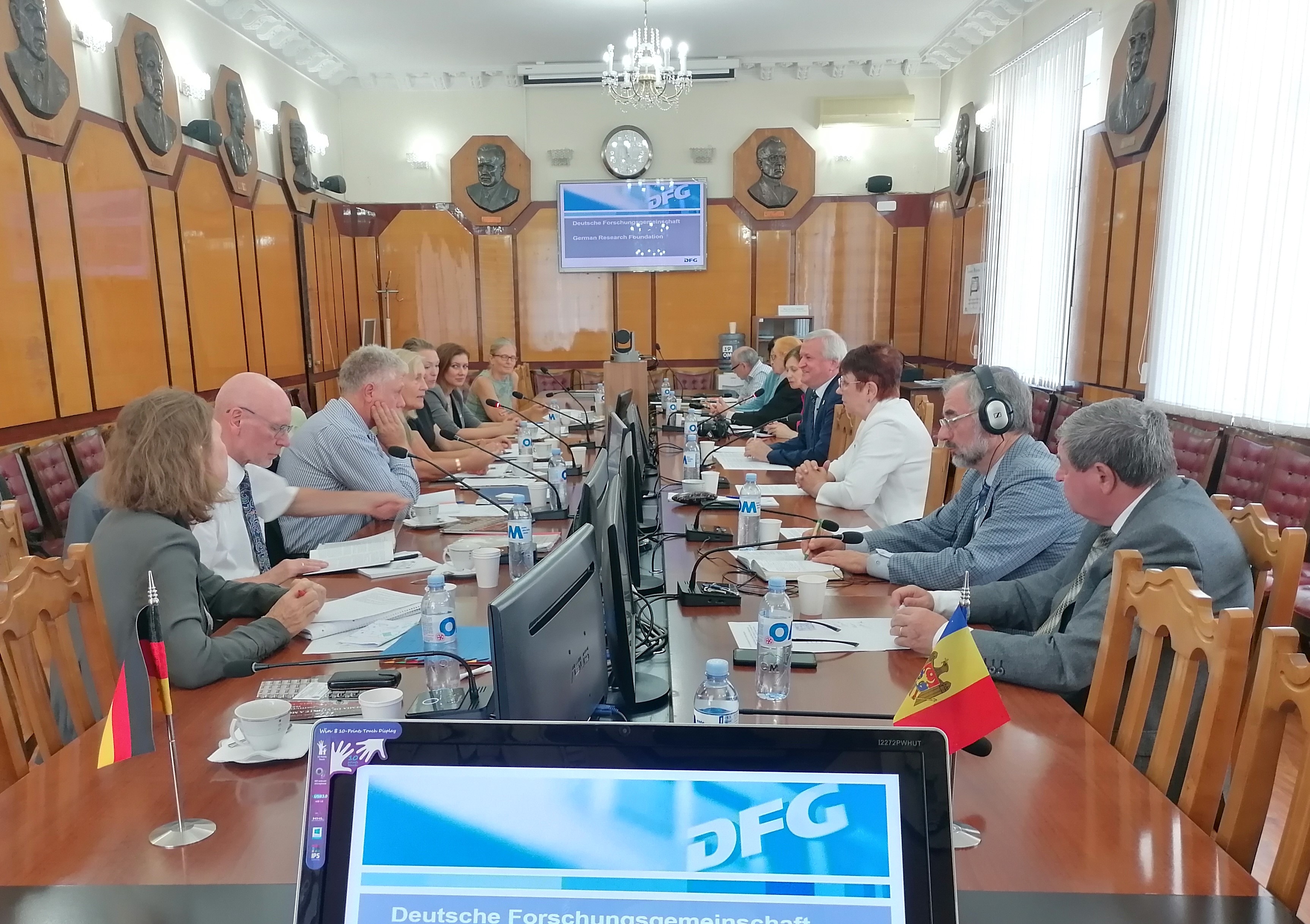Cultivating the Eastern Partnership: DFG for Talks in Moldova
On a delegation trip undertaken by the Federal Ministry of Education and Research (BMBF) to the Republic of Moldova from 11 to 13 September 2023, the DFG’s schedule included visits to the Academy of Sciences and the country’s national funding agency. In view of the Republic of Moldova’s recently acquired status as a candidate for EU accession, talks were also held with rectors of leading universities about new perspectives in research cooperation.
Besuch der deutschen Delegation bei der moldauischen Akademie der Wissenschaften
© Akademie der Wissenschaften Moldau
Against the background of the current geopolitical challenges, it is important for Germany, too, to expand cooperation in the field of research with the countries of the EU’s Eastern Partnership. The DFG is committed to improving the framework conditions for research cooperation in this region, especially with Georgia, but also with the Republic of Moldova, where partnerships have long been maintained and project cooperations funded. Moldova has been a candidate for EU membership since June 2022, so there are now new opportunities for scientific cooperation in the medium term. For this reason, the DFG took up the BMBF’s inquiry to undertake a contact trip together with representatives of the German Academic Exchange Service (DAAD), the German Rectors’ Conference (HRK), the University Alliance Ruhr and the Centre for Eastern European and International Studies (ZOiS).
In talks with the German Ambassador in Chișinău, Margret Maria Uebber, the delegation learned about current developments in order to familiarise themselves with the new conditions for cooperation on site. A meeting was held at the Ministry of Education and Research in which Acting State Secretary Adriana Cazacu provided insights into the country’s current research policy issues.
Besuch der deutschen Delegation bei der moldauischen Akademie der Wissenschaften
© Akademie der Wissenschaften Moldau
One visit that was of particular significance for the DFG was to the Moldovan Academy of Sciences, with whom contact was originally established many years ago. Once the largest and most important national research institution, the Academy is now the country’s most important research policy advisory body. Academy President Ion Tiginyanu outlined the impact of the ongoing reform processes in the science and education sector, highlighting current strengths as well as the major challenges facing the country. The DFG presented its funding programmes and statistics, and prospects for future cooperation were discussed together with the German representatives.
Meanwhile a visit to the National Agency for Research and Development (NARD) provided the DFG with an opportunity to make contact with the Republic’s most important funding agency. Founded in 2018, the organisation is entrusted with the competitive awarding of funding for the quality-assured selection of outstanding research projects and now provides the DFG with a new structural point of contact in Moldova.
Besuch der deutschen Delegation bei der moldauischen Akademie der Wissenschaften
© Akademie der Wissenschaften Moldau
With the objective of establishing direct contact with the leading Moldovan universities and identifying priority research topics for future bilateral activities, in-depth interaction also took place with Moldova State University, the State University of Medicine and Pharmacy, Ion Creangă State Pedagogical University, the Academy of Economic Studies of Moldova and the Technical University of Moldova.
Proposals received by the DFG indicate a solid and growing interest in bilateral research cooperation on the part of the German research community. For example, the DFG has already funded projects related to the Republic of Moldova and with the participation of the Academy of Sciences and the above-mentioned universities in recent years in the fields of antiquity, history and social sciences, as well as in the natural sciences and life sciences. The delegation trip and the DFG’s institutional networking with further promotion of its international funding programmes also aimed to promote research cooperation with Germany against the backdrop of the EU’s increased commitment to research policy.


